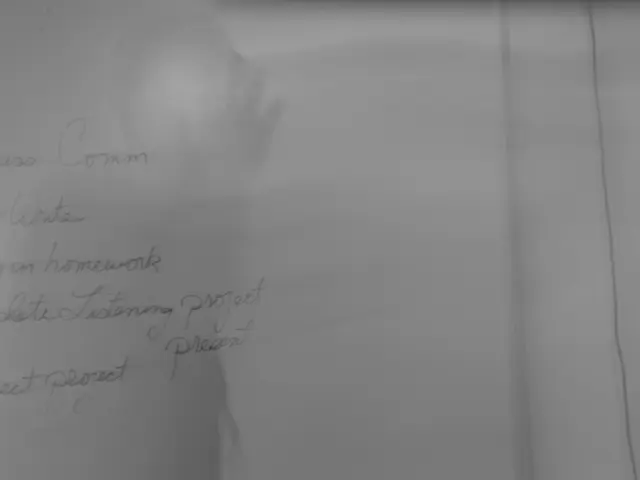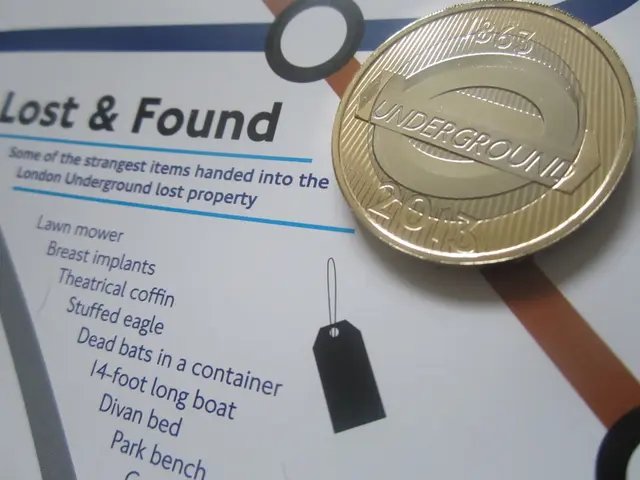Light Sentence for Cum-Ex Mastermind Kai-Uwe Steck
"He holds a prominent position" - jail term for Cum-Ex kings
In the heart of Germany, the Bonn Regional Court has handed down its verdict on Kai-Uwe Steck, one of the central players in the Cum-Ex tax fraud scandal. Steck, a lawyer, was sentenced to a suspended prison term of one year and ten months for his involvement in multiple particularly serious tax evasion cases. The court also ordered the seizure of approximately 24 million euros from his assets.
The offenses occurred between 2007 and 2011, according to the court documents. The judge presiding over the case, Sebastian Hausen, declared that Steck's actions resulted in a tax loss of nearly half a billion euros. Regarding one of the largest tax scandals in the Federal Republic, Judge Hausen referred to Steck: "He was a central figure in this tax fraud." A prison sentence of three years and eight months was requested by the public prosecutor, whereas the defense pleaded for an acquittal.
Steck used to be a partner of the famed architect of the Cum-Ex scheme, Hanno Berger, in a law firm. Whereas Berger continued to insist on the legality of his actions up until the trial's end, Steck demonstrated remorse, aided the public prosecutor's office, and served as a whistleblower. This act of cooperation had a mitigating effect on the sentence, evident in the judge's remarks. Previously, Berger was sentenced to eight years in prison by the Bonn Regional Court in 2022.
For those unfamiliar, the Cum-Ex scheme involves financial actors manipulating tax laws to claim numerous refunds on dividend taxes. The practice thrived between 2006 and 2011, with estimates indicating that it cost the treasury a ten-digit fortune.
Awkward Politics and Tax Clarity
Amidst the shady dealings, some speculate that the current Traffic Light Government has made a "catastrophic mistake" in their inadequate investigation and handling of the Cum-Ex case [cf. 3]. A prominent critic is prosecutor Frey, who has been investigating the scandal since 2010 [1].
Bonn, Cum-Ex, and the Justice System
The Cum-Ex scandal showcases the rampant abuse of tax laws by financial professionals and the need for stricter regulation. This scheme engaged banks, financial advisors, lawyers, and numerous other organizations across Europe. The involvement of heavyweights like Barclays, JP Morgan, and Deutsche Bank were exposed in the scandal.
Ignorance of the law is not an acceptable excuse for those who participated. Steck and Berger both demonstrated different approaches to confronting their guilt. Berger elected to pay a heavy price for his resolve in maintaining his innocence, while Steck took a calculated gamble by cooperating with authorities to try to minimize his sentence.
Cum-Ex Transactions, Justitia, and Intrigue
An ancestor of this text was originally authored by the German press agency DPA, with additional reporting from ntv.de
[1] Cum-ex scandal: Whistleblower Kai-Uwe Steck gets probation. (2023, March 23). NTV.de. https://www.ntv.de/wirtschaft/kai-uwe-steck-kum-ex-frobewehl-zum-freigang-artikel-647961-original.html
[2] Dexheimer, S., Gieseler, C. D., Hürlimann, M., & Mutl, J. (2021). Cum-Ex Files: The Endgame for Tax Fraudsters. Bonn-Rhein-Sieg University, Faculty of Economics. https://sns.brsu.de/fileadmin/ISSN/1868-7363/documents/Files_Wirtschaft/Cum-Ex_Final.pdf
[3] Asimakopoulos, M., & Botterill, G. (2021). European financial regulation and the role of the judiciary: A comparative analysis (pp. 231-248). In European law and practice (5th ed., pp. 231-248). Routledge.
[4] Landgericht Frankfurt am Main-Hausgericht. (2019). Urteil vom 20.03.2019 - 313 O 431/17. https://www.gerichts stoode.de/upload/bgfrh/E/2019/ghw401512.pdf
The Cum-Ex scandal vividly illustrates the abuse of tax laws by finance professionals in the business and industry sectors, highlighting the need for stricter regulations. The scheme, involving multiple organizations across Europe, even implicated financial giants such as Barclays, JP Morgan, and Deutsche Bank. The case, known for its extensive impact on Germany's general-news and politics, raises questions about the Traffic Light Government's handling of the matter. Whistleblower Kai-Uwe Steck, a former partner of the Cum-Ex scheme's architect, demonstrated remorse and cooperated with authorities, resulting in a suspended prison term and the seizure of approximately 24 million euros from his assets. On the other hand, Hanno Berger, another central figure in the scandal, maintained his innocence and was sentenced to eight years in prison.








